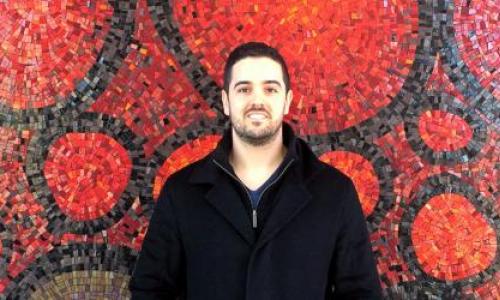
Before I wrote a little bit about my experiences working in restaurant kitchens part-time during my undergraduate degree. While I do enjoy reminiscing about those times, I’m also aware that not all readers will necessarily benefit from such a personal discussion. Who wants to read about some guy washing dishes 8 or 9 years ago, anyway?
Nonetheless, the crux of the post was meant to be encouraging, uplifting. My relentless optimism was shining through, and its light was meant to illuminate a basic concept that I believe gets very quickly overlooked by many students and recent graduates in their job search: transferable skills.
This week, you’ll get to read a little bit more directly about the concept, and how you can use it effectively in your next job search.
What is meant by the term “transferable skills?” Simply and intuitively speaking, the phrase refers to a group of skills, or abilities, that you can use across a variety of (employment) settings. Often, these broad skills form the basis for the development of narrower, more “advanced” skills. For any video game/Dungeons and Dragons nerds out there (yes, I reluctantly admit that I include myself in these categories), this is equivalent to a set of basic skill or attribute areas that you must first “level up” in before being able to use the really awesome moves that allow you to efficiently destroy large numbers of enemies.
There are many categorizations of transferable skills out there, but one of the most commonly referred to in the career development field is the rather epically named “Employability Skills 2000+.” They group skills into 3 main categories: Fundamentals, such as communication and problem solving skills; personal management, such as positive attitudes, responsibility, and adaptability; and teamwork, such as working with others and participating in projects and tasks.
There are lots of other categories that one could see as valuable across situations. For example, research and planning/analytical skills, leadership skills, interpersonal skills, organizational skills, time management skills, etc.
I have a sense that that’s not really new information to anybody. However, I’ve talked to quite a few very intelligent, eager students that fall into one of 2 categories:
-
Student who wants to find a job in their field, but thinks they have no related experience on their resume
-
Student who has lots of experience, usually pretty confident, but doesn’t contextualize the claims they make on their resume
Wait a second. I thought you were talking about skills, Dave – why the sudden shift over to “experience?”
Well, it’s not a huge logical leap to see the connection between skills and experience. We need experience to gain and build skills. We need those skills to obtain experience with which to use and improve those skills. On and on it goes.
This is intuitive and I don’t need to explain the concept any further – it’s just common sense. But there’s often a huge gap between what we see as common sense and what we actually put on our resumes. We know there’s this connection between skills and experience, but most of us won’t explicitly make that connection on our resumes.
Anybody can make the claim that they’ve got great communication/organization/interpersonal/etc. skills on their resume. Anybody.
So what use is that information to me as an employer? The answer is not very much, in and of itself. All I know for sure from such a statement is that you think you know what I want to hear. I can’t count the number of resumes I’ve seen where this kind of claim is made, without any context provided to back it up.
It’s a very simple solution. For the student who thinks they have no relevant experience to their field, looking at those transferable skills that are relevant to whatever job they are applying to and contextualizing them on their resume with whatever experience they have opens up a world of relevance and possibility.

A personal example: I learned excellent time management skills during my time as a prep cook. In order to get everything ready for lunch/dinner service, I had to know what needed doing next, how much time it would take me to do, what needed to be prioritized, and when to ask for help. Without time management skills, I wouldn’t have been a good prep cook at all. I know that (hopefully) my next job is not going to involve making sauces in giant batches or cutting 20 lb boxes of vegetables into square inch pieces, but it sure will draw on those same time management skills.
But unless I made that connection explicit on my resume, how would an employer know? Do you want to take the chance of forcing them to connect the dots, to see why what you’ve done in the past is relevant? Simply stating that I developed great time management skills isn’t good enough. The best policy is to make it clear how you used those skills and why they ultimately helped the company. Talk about specifics. Talk about outcomes. The relevance will be obvious.
The same applies for student type number 2, who has lots of relevant experience but doesn’t think they need to provide any specific context. The employer might have an idea of why a certain experience would be relevant to them, but you’re still missing a huge opportunity to influence (in a good way) how they interpret your experience if you don’t make direct connections between what you did and why it mattered that you did it. This also has the added benefit of saving them from the mental work of thinking about why something might be relevant, and that’s always a good thing.
We all have transferable skills. Perhaps that’s why it’s of very little value to simply state that you are great at a certain skill, because there’s bound to be a whole bunch of other applicants who’ve said the same thing. Only you have your unique combination of skills and how you’ve applied them within certain experiences.
















